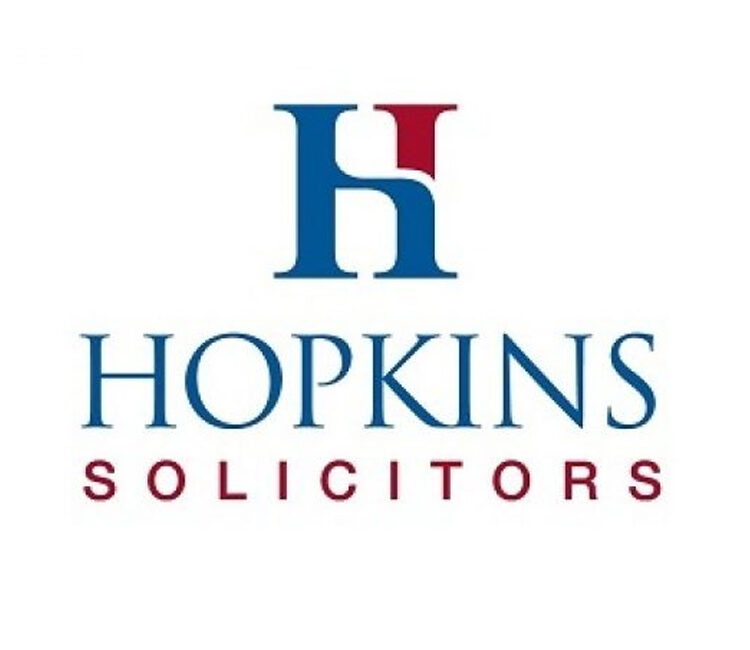
Lease Extension Solicitors
Protect Your Property’s Value with a Smooth Lease Extension—Hopkins Solicitors is Here to Help
Owning a leasehold property means taking steps to protect its value, especially as the lease term shortens. Extending your lease can prevent value loss and keep your options open for selling or refinancing. At Hopkins Solicitors, we understand the challenges and complexities involved in lease extensions and are here to support you every step of the way.
Why Choose Hopkins Solicitors?
- Specialised Expertise: Our experienced lease extension solicitors guide you through each step, from valuation to negotiating with your freeholder.
- Client-Focused Approach: We prioritise your needs, ensuring you understand your rights and receive clear, practical advice throughout the process.
- Efficient, Stress-Free Process: Lease extensions can be daunting, but we manage the paperwork, legal requirements, and negotiations so you can extend your lease with confidence.
Ready to Secure Your Property’s Future?
Don’t let the complexities of lease extensions hold you back. At Hopkins Solicitors, we’re committed to providing the support you need to navigate each step smoothly.
Protect your investment by getting in touch with us today.
Owning a leasehold property means you only own it for a set number of years. As that time ticks down, the value of your property can drop. This can make it harder to sell or remortgage. Extending your lease is crucial to protecting your investment and keeping your home’s value.
However, navigating the lease extension process can be tricky. It involves legal steps and negotiations with your freeholder, which can feel overwhelming. That’s where Hopkins Solicitors come in. With years of experience, our team is here to guide you through every step of extending your lease. We’ll ensure you understand your rights, help with the paperwork, and negotiate on your behalf.
At Hopkins Solicitors, we’re dedicated to making the lease extension process as smooth and stress-free as possible. Let Hopkins Solicitors help you secure your property.
What is a Leasehold Property?
A leasehold property is a home you own for a set period, but you don’t own the land it sits on. Instead, you lease it from the freeholder, who owns the land. The lease outlines how long you can live there, often for 99, 125, or even 999 years.
Unlike freehold properties, where you own the building and the land outright, leaseholds mean your ownership is temporary. As the lease term gets shorter, your property’s value can decrease, making it harder to sell or remortgage. It’s important to keep an eye on how many years are left on your lease. Once it drops below 80 years, extending it becomes more expensive and complicated.
Understanding the difference between leasehold and freehold is key to managing your property’s future. Knowing when to extend your lease can protect your investment and keep your options open.
Why Lease Extensions are Important
When your lease drops below 80 years, problems can arise. The value of your property can decrease, making it harder to sell. Mortgage lenders may refuse to offer loans on properties with short leases. This can limit potential buyers or make remortgaging difficult. Extending your lease becomes more expensive and complicated once it falls below this threshold.
It’s crucial to extend your lease before it reaches this point. Doing so helps maintain your property’s value and keeps your options open for selling or remortgaging. If you wait too long, the process can become more stressful and costly.
Extending a lease can be tricky, especially if you’re not sure where to start. That’s why getting expert advice early is so important. Making sure your lease is extended in time can save you a lot of trouble in the long run.
Common Challenges in Lease Extensions
Lease extensions can be challenging for many leaseholders. One common issue is negotiating with the freeholder, who may push for higher costs or unfavourable terms. This can make the process stressful and time-consuming. Another challenge is understanding the legal terms involved. The language used in lease agreements and extension paperwork can be confusing, making it hard to know if you’re getting a fair deal.
These challenges can lead to delays, increased costs, or even disputes. Having legal expertise on your side is crucial to avoid these pitfalls. A solicitor who specialises in lease extensions can guide you through the process. They help you understand your rights and negotiate better terms. With the right support working your way through these challenges is simple. This ensures a smoother and more successful lease extension.
The Lease Extension Process
Initial Steps in Lease Extension
The first step in extending your lease is to carefully review your current lease agreement. This helps you understand how much time is left on the lease and any specific terms you need to consider. If your lease is approaching 80 years, it’s crucial to act quickly. Once it dips below 80 years, the cost of extending the lease can increase significantly, and the process may become more complex.
Next, it’s important to obtain a property valuation. This will give you a clear idea of how much the lease extension might cost. A qualified surveyor can assess your property and provide a valuation. This can be used during negotiations with the freeholder. Starting this process early is key to avoiding last-minute stress and ensuring that you can secure a fair deal. Early preparation allows you to gather all necessary information avoiding unnecessary delays.
Legal Requirements and Procedures
In the UK, leaseholders have statutory rights to extend their lease under specific conditions. If you’ve owned your property for at least two years and the original lease was granted for more than 21 years, you’re likely entitled to a lease extension. This statutory extension adds 90 years to your current lease term. This therefore reduces ground rent to a nominal amount.
The formal lease extension process begins with serving a Section 42 notice to your freeholder. This outlines your intention to extend the lease. This also includes your proposed premium (the price you’re willing to pay). It’s important that this notice is accurate and legally compliant, as mistakes can lead to delays or even a loss of your rights. A solicitor plays a crucial role in drafting and serving this notice. This is through making sure legal requirements are met and by helping you navigate any challenges that arise. Proper legal guidance can make a significant difference in the success of your lease extension.
Negotiating with the Freeholder
Negotiating the terms of your lease extension is a critical part of the process. Key points to negotiate include the premium payable and any changes to ground rent. It’s important to know your property’s value and the legal framework surrounding lease extensions.
Preparation is key, before negotiations begin, ensure you have a professional valuation of your property. This will provide a solid foundation for your negotiations and help you argue for a fair premium. Keep in mind that freeholders may seek to maximise their return, so be ready to negotiate assertively.
Effective communication and patience are also important during negotiations. While it can be tempting to rush the process, taking the time to reach a fair agreement is crucial.
If negotiations become challenging, professional legal support can make a significant difference. A solicitor is there to get your interests across and discuss on your behalf. These then help you navigate any disputes that arise. Having expert support can provide peace of mind and help ensure a successful outcome.
Lease Extension Costs and Valuation
Extending your lease involves several costs that leaseholders need to consider. The main cost is the premium, which is the amount paid to the freeholder for the lease extension. This can vary widely depending on factors such as the remaining lease term and the property’s value. Additionally, there are legal fees for both you and the freeholder, as well as costs for obtaining a professional valuation.
Understanding these costs as soon as possible is key to budgeting and planning. A professional valuation is essential to ensure that the premium is fair and reflects the true market value of the extension. This valuation can also provide a strong basis for negotiation with the freeholder.
Legal Considerations in Lease Extensions
Understanding Leasehold Valuation
Leasehold valuation is an essential part of extending your lease. It determines how much you will pay for the extension. The length of time left on your lease and the ground rent you pay are the key factors. If your lease has less than 80 years remaining, the cost of extending it can rise sharply. This is due to something called “marriage value.” Marriage value is the potential increase in your property’s value after the lease is extended.
A solicitor can help ensure the valuation is fair. They can arrange for a surveyor to assess your property. The surveyor will give a valuation based on the current market. This will help you understand what is reasonable to pay for the lease extension. With legal support, you can approach the valuation process confidently, knowing you are not overpaying. A fair valuation is crucial to making sure the lease extension is worth the cost.
Legal Documentation and Paperwork
Extending a lease involves several important legal documents. The main document is the new lease agreement. This outlines the updated terms of your lease, such as the new lease term and any changes to the ground rent. Other documents might include contracts and formal notices that need to be signed and exchanged between you and the freeholder.
Accurate documentation is critical. Mistakes or missing information can cause delays or even legal issues. It is important to have all paperwork checked and prepared correctly. A solicitor can manage this for you. They ensure that all documents are complete, accurate, and submitted on time. This reduces the risk of problems and helps the lease extension process go smoothly. Proper documentation is key to protecting your rights and avoiding future disputes.
Potential Disputes and How to Handle Them
Disputes can arise during the lease extension process. A common issue is disagreement over the property’s valuation. The freeholder might not agree with the valuation your surveyor provides. This can lead to tough negotiations or even a formal dispute. Other disputes might involve disagreements over the premium, ground rent, or specific lease terms.
When disputes happen, legal support is crucial. A solicitor can negotiate on your behalf, working to find a fair solution. They can help mediate conflicts and ensure your rights are protected. If a resolution cannot be reached through negotiation, a solicitor can represent you in legal action. This ensures that disputes are handled properly and that your interests are defended. Hopkins Solicitors can reduce stress and help resolve disputes more quickly. This makes it easier to secure a fair outcome and complete the lease extension process.
Post-Extension Considerations
Mortgage and Financial Implications
Extending your lease can affect your mortgage. A longer lease makes your property more attractive to lenders. This can lead to better refinancing options, like lower interest rates or improved terms. These changes can save you money and make managing your mortgage easier.
However, it’s important to talk to both a solicitor and a financial advisor. Your solicitor can explain the legal side of the lease extension. They will make sure you understand your rights and obligations. A financial advisor can show you how the new lease terms might affect your mortgage. This advice helps you make informed decisions. It’s especially important if you plan to sell or refinance your property later. Consulting both professionals ensures you’re making the best choices for your financial future.
Future Lease Management
After extending your lease, managing it well is crucial. You need to keep track of key dates, like when the new lease term ends or when ground rent is due. Missing these dates can cause problems.
Understanding your ongoing obligations is also important. This might include maintenance or other responsibilities. Knowing what’s expected helps you avoid issues down the road. It’s also a good idea to have a solicitor available for ongoing support. If any problems or questions come up about the lease, legal advice can be very helpful. Proper management of your lease protects your investment.
By staying on top of these details and getting professional advice when needed, you ensure that your lease works in your favour, both now and in the future.
How Hopkins Solicitors Can Help
Hopkins Solicitors offers full legal support for lease extensions. We guide you from the first consultation to the final agreement. Our team knows the lease extension process well and handles all the details.
One of our key skills is negotiating with freeholders. We work to get you the best terms possible. Hopkins Solicitors also makes sure everything follows UK leasehold law. This ensures that your rights are protected.
Our expertise reduces stress and makes the process easier for you. Whether you need help understanding the steps or dealing with tricky negotiations, we are here to assist. You can rely on Hopkins Solicitors to manage your lease extension smoothly, keeping your interests at the forefront.
Conclusion
Extending your lease is crucial for maintaining your property’s value and avoiding legal problems. A longer lease keeps your property valuable and helps you steer clear of issues that come with shorter leases.
At Hopkins Solicitors, we offer complete support for lease extensions. From start to finish, we guide you through the entire process. Our team is skilled at negotiating with freeholders and ensuring all legal rules are followed.
If you need help with extending your lease, please contact us. We provide advice and support tailored to your needs. Our experts will assist you every step of the way to make sure everything is handled correctly. Don’t wait—reach out today to get the help you need and protect your property effectively.
FAQs
How long does the lease extension process typically take?
The lease extension process usually takes between 2 to 6 months. This time can vary depending on how quickly you and the freeholder agree on terms.
What are the key factors that affect the cost of a lease extension?
The cost of extending a lease depends on several factors. These include the length of the lease, the property’s value, and the ground rent. Legal fees and valuation costs also add to the total expense.
Can a leaseholder extend their lease if the freeholder refuses to negotiate?
Yes, a leaseholder can extend their lease even if the freeholder refuses to negotiate. Under UK law, leaseholders have the right to a statutory lease extension. This legal process can be used to extend the lease if negotiations fail.
Request a Callback
"*" indicates required fields
Meet the Team
Testimonials
-
Excellent service from everyone would definitely recommend to other people.
Gavin Taylor, 11th March 2024
-
Oliver was superb. His communication was great, I could ask for no more.
Paul Guy, 19th February 2024
-
I just felt like I have made good friends who really care for you and understand what you are doing and going through. Great advisors as well.
Naveela Asif, 12th February 2024







